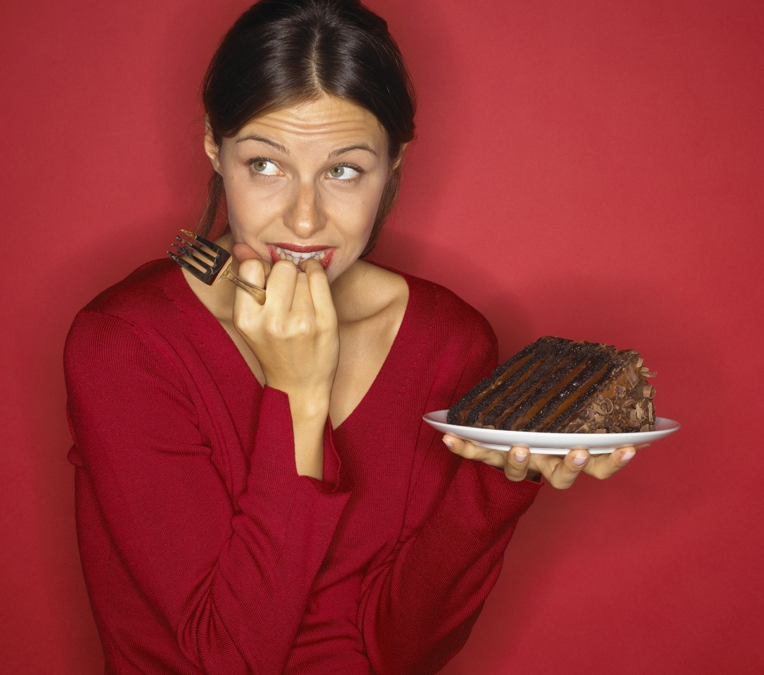How to get back on track after a calorie bust

Okay, so you blew your calorie budget. For whatever reason, you simply got of track. Perhaps, you woke up late and were unable to prepare a healthy lunch, then you went to one of your old haunts and ordered the usual. Maybe, you were out with old “eating buddies” and you were tired of not fitting in and went for the cake. Perhaps, you were simply too tired at the end of the day and the thought of cooking was too daunting, then you made a call to Dominos. Maybe you stepped on the scale after weeks and weeks of being “good”; you gained weight, or the scale never budged. This left you with thoughts of failure and frustration which in turn led you to overeat. If any of this sounds familiar, find comfort in that you are not alone. With any behavioral change program, slips are part of the process and bound to happen. They are expected and normal in fact. Remember, you are fighting your primal brain. It was designed to make you seek out energy rich foods and over eat in times of plenty. This was to prepare for survival during times of famine. The problem is that our brains have not changed to match the availability of food in our modern lives. Our environments are literally like candy stores, with tasty, addictive morsels on every corner. The hardest thing about curving an unhealthy relationship with food is that unlike, alcohol or other drugs, we need food to survive. The good news is that you can overcome this primitive brain. This takes time and energy, but you can train the more advanced parts of your brain to resist the urges that your primitive brain is sending. Setbacks are part of the journey. Remember, any change worth making is never easy.

Tips for getting back after a slip
1. Stop the negative self-talk. It is not helpful to berate yourself and tell yourself you are a failure and have no will power. This kind of thinking leads to shame and guilt which is in no way serves you for the better.
2. Use the opportunity to learn something. Take some time to review what events that led up to your decision to over eat. Journal your thoughts and feelings and review the notes often. This will help you see the red flags in the future. For example, perhaps you did not exercise, and you felt guilty, therefore you ate to stop that feeling. Acknowledging that under exercising leads to overeating will help you be more mindful of your need to exercise in the future.
3. Take a look at your plan. Perhaps you need more support. Maybe you would benefit from more social interactions with others struggling with the same issues, maybe you need to tweak your goals, or review your values. Again, take this opportunity to learn and grow, not shrink and wilt.
4. Remember the good! Most likely, you have had more good days than bad. Celebrate those successes. Take notice of what was working. List them out. Perhaps, you discover that when you wake up earlier you are able to be more prepared during the day. Maybe, going to bed earlier eliminates the opportunity for late night snacking. Keep doing what it is working.
5. Forgive yourself. At first, you will feel anger and disappointment over your slip. But a slip does not equal failure. You must forgive yourself to move forward. Embrace your mistake and press on. Do not let your slip define you as a person. You are strong, and you can do this.
Having tough calorie days are bound to happen. Remember you are trying to change behaviors that most likely have existed for most of your life. It took time to lay down those brain pathways and it will take some time to change them. Be patient and kind to yourself! Stay mindful and breathe. For more tips and weight management strategies visit our blog at www.behaviourchangecenter.com.

